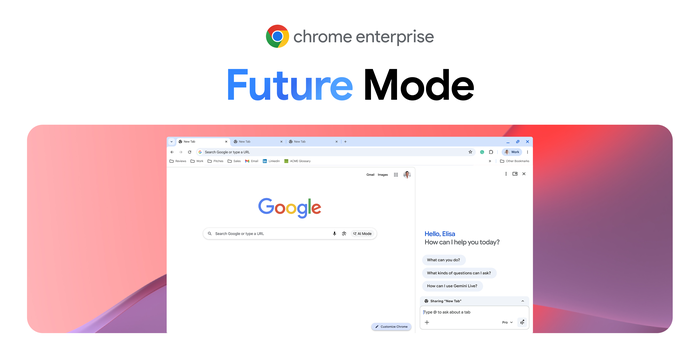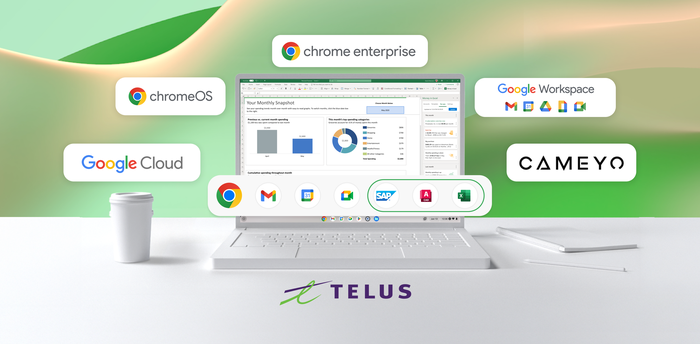Middlesex Hospital paramedics improve patient care with Chromebooks with Citrix

John Connelly
Jim Santacroce
Editor’s note: Today’s post comes from Michael Romatzick, Desktop Architect; John Connelly, EMS Quality Coordinator; and Jim Santacroce, Manager of Emergency Medical Services—all from Middlesex Hospital in Middletown, Connecticut. The hospital is using Chromebooks and Chrome Enterprise with Citrix to help clinicians in several departments better serve patients. Below, Michael, John, and Jim explain how Chromebooks and Chrome OS help the hospital’s paramedics capture patient data during high-pressure emergency situations.
Time is precious when you’re treating a person who needs critical care. Any equipment we carry to one of our 10,000 yearly emergency calls needs to operate without fail, so we can start caring for patients and recording health data seconds after we arrive on the scene. Chromebooks and Chrome OS are now as vital to our emergency packs as are the heart monitors and defibrillators.
The Panasonic Toughbooks we used to carry on 911 calls couldn’t keep up with front-line emergency work. They were rugged, but plagued by battery and bootup failures. A blue screen is not what you want to see when trying to document a patient’s condition: Doctors and nurses need this data in order to correctly treat patients arriving at the hospital. Besides the reliability issues, our IT team worried about keeping the laptops secure—a big concern when managing patient data. The team had to routinely take laptops out of service to update software and add security patches.

We replaced the clunky slow Toughbooks with 12 HP 11 G4 EE Chromebooks that were designed to survive rough-and-tumble school classrooms—we thought they’d stand up well to being tossed in and out of SUVs and ambulances all day and night long.
But it wasn’t just the device that sold us. It’s also Chrome OS. Doctors and nurses now use Chromebooks on their rounds, accessing clinical applications through Citrix apps—and so do our physical therapists and flu clinic managers. If they were seeing the value of lightweight, durable laptops and easy access to our medical records apps, then we thought Chromebooks and Chrome OS would work for the paramedics. Having easy access to our charting systems through the Chrome browser, right when we’re at the patient’s side, is absolutely critical for us.
The Chromebooks are everything the old laptops were not. Even though they’re built to withstand rough handling, they don’t weigh down our emergency packs. Their battery life keeps pace with our long shifts. It takes no time at all to learn how to use Chrome OS on Chromebooks —and when you open them, they boot up almost immediately. We don’t need to watch the minutes tick away while we wait to open a patient record—especially in the high-pressure emergency environment.
From an IT standpoint, Chromebooks free us from many of the management headaches created by the old devices. Paramedics can easily hand off Chromebooks to colleagues when shifts end. After a paramedic logs out of Chrome, all data is either stored in the cloud or encrypted locally, making the device secure and ready for the next paramedic to use without any concerns about patient data privacy.
Using Chrome device management, the IT team can set up a new Chromebook in about 10 minutes, instead of the hours it used to take. Since Chrome OS updates automatically with security patches, paramedics don’t need to return Chromebooks to the IT office for maintenance. Once we equip a paramedic with a new Chromebook, we might not hear from them for months or even years about problems, unlike the old laptops that needed constant maintenance.
As well as the time savings, the cost difference between our old laptops and Chromebooks is tremendous. The 12 HP Chromebooks we bought for paramedics cost less than just one of the previous Toughbook laptops. Given that so much of what we do is now accessed through cloud applications—including access to legacy applications through Citrix—expensive laptops that demand constant maintenance just don’t make sense.
The best part of the paramedics’ day is knowing that their expertise and fast actions create positive outcomes for patients. Chromebooks and Chrome OS help us bring the emergency department to the patient before they even get to the hospital.



